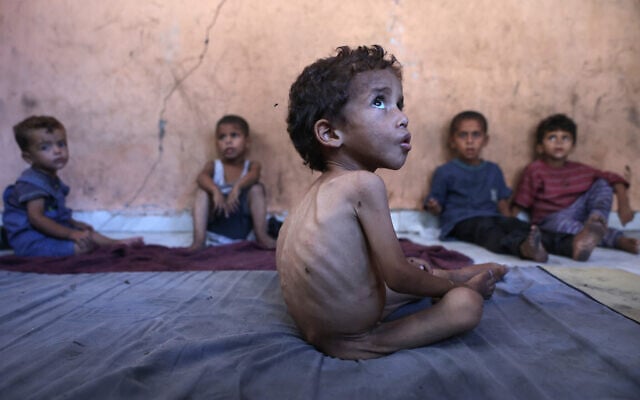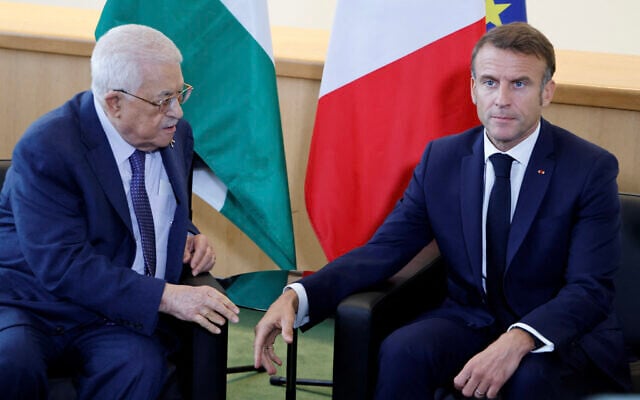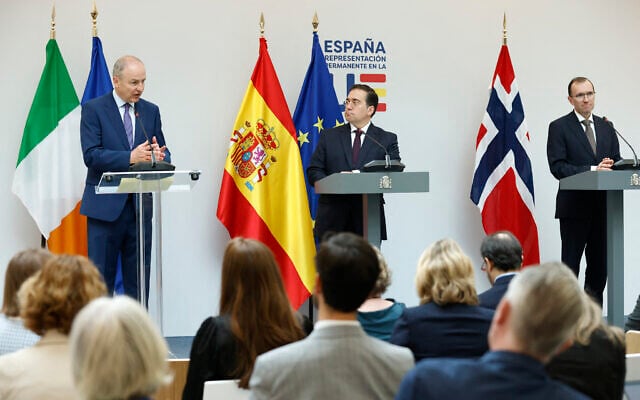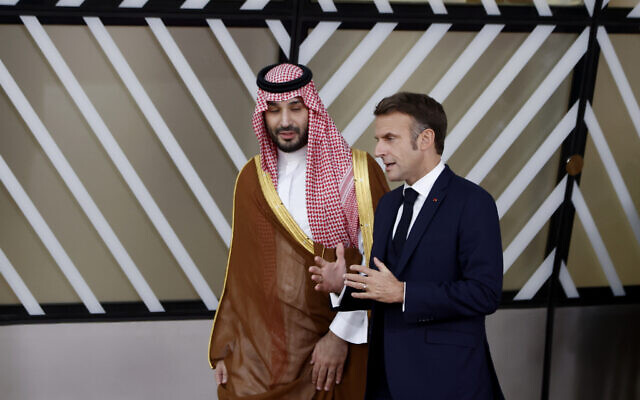


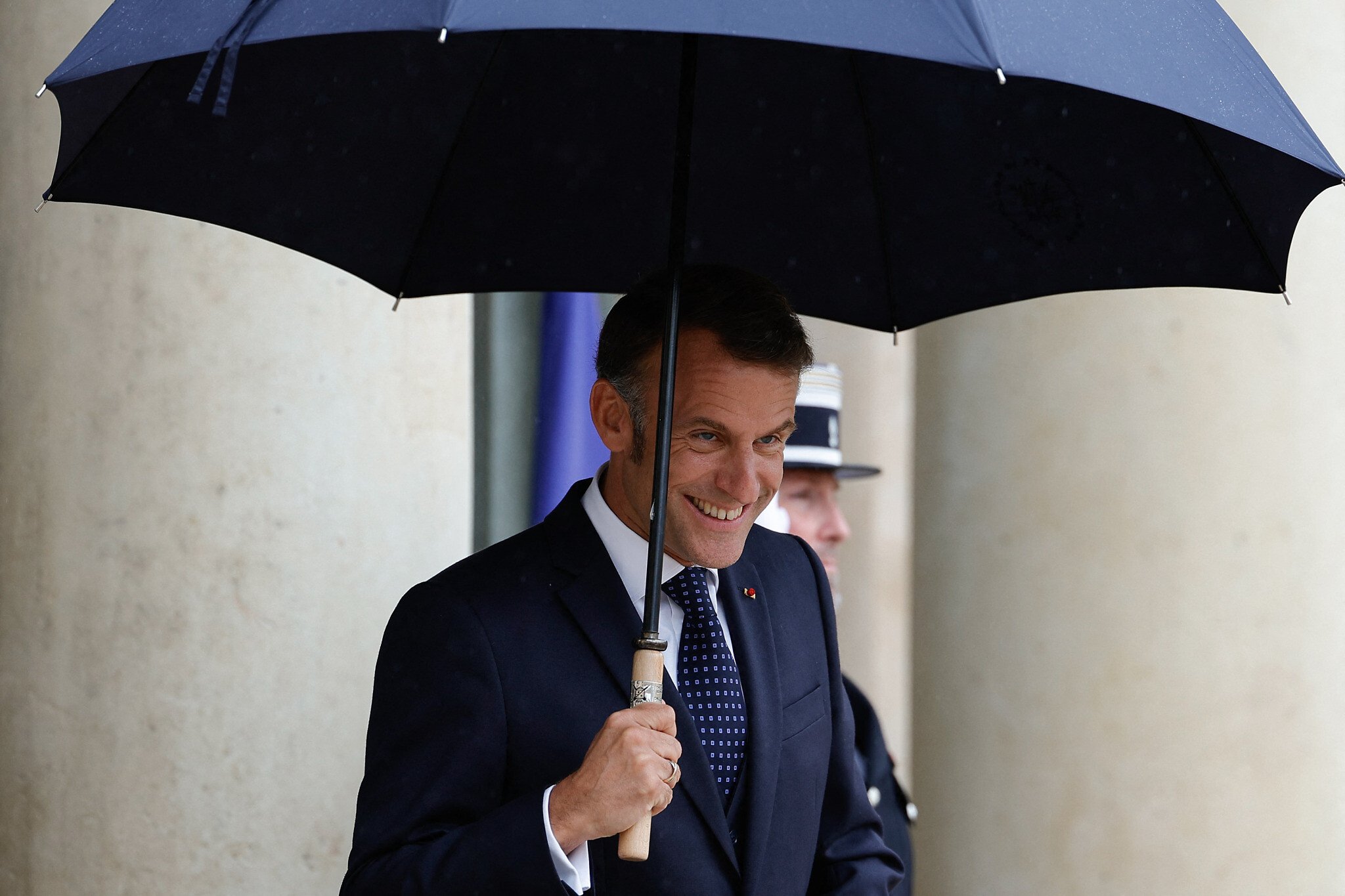
French President Emmanuel Macron said Thursday that his country would formally recognize a Palestinian state during a UN meeting in September, in what would make Paris the most powerful European nation to advance such a move.
“True to its historic commitment to a just and lasting peace in the Middle East, I have decided that France will recognize the State of Palestine,” Macron said in an X post. “I will make this solemn announcement at the United Nations General Assembly next September.”
Macron’s announcement drew immediate anger from Israel, with Prime Minister Benjamin Netanyahu saying it “rewards terror” and poses an existential threat to Israel.
Netanyahu said in a statement that the decision “risks creating another Iranian proxy, just as Gaza became,” which would be “a launch pad to annihilate Israel — not to live in peace beside it.”
Several of his far-right coalition partners called for Israel to annex the West Bank in response to the move.
Some opponents of countries unilaterally recognizing a Palestinian state maintain that the move is merely symbolic when done without cooperation with Israel, adding that that a Palestinian state can only be the result of negotiations between both sides of the conflict. But supporters of the move say the current Israeli government is uninterested in such talks or in a two-state solution and that the framework can therefore only be advanced through diplomatic pressure.
France, home to Europe’s largest Jewish and Muslim communities, will become the first major Western country to recognize a Palestinian state, potentially giving greater momentum to a movement so far dominated by smaller nations that are generally more critical of Israel.
At least 142 countries now recognize or plan to recognize Palestinian statehood, according to an AFP tally. Several countries have announced plans to recognize statehood for the Palestinians since the outbreak of the Gaza war, which was sparked by Hamas’s October 7 onslaught.
US Secretary of State Marco Rubio called it a “reckless decision (that) only serves Hamas propaganda.”
“It is a slap in the face to the victims of October 7th,” he wrote on X.
In a diplomatic cable in June, the United States said it opposed any steps that would unilaterally recognize a Palestinian state even saying it could go against US foreign policy interests and draw consequences.
According to sources familiar with the matter, Israel’s warnings to France have ranged from scaling back intelligence sharing to complicating Paris’ regional initiatives – even hinting at possible annexation of parts of the West Bank.
Palestinian Authority President Mahmoud Abbas’s deputy Hussein al-Sheikh welcomed the move, saying it “reflects France’s commitment to international law and its support for the Palestinian people’s rights to self-determination and the establishment of our independent state.”
PA rival Hamas also hailed Macron’s pledge, characterizing it as a “positive step in the right direction toward doing justice to our oppressed Palestinian people and supporting their legitimate right to self-determination.”
Hamas said Macron’s decision “reflects the growing international conviction of the justice of the Palestinian cause and the failure of the occupation to distort the facts.”
“We call on all countries of the world — especially European nations and those that have not yet recognized the State of Palestine — to follow France’s lead,” the terror group added.
Macron had been leaning towards recognizing a Palestinian state for months as part of a bid to keep the idea of a two-state solution alive despite the pressure not to do so.
French officials initially weighed up the move ahead of a United Nations conference, which France and Saudi Arabia had planned to co-host in June to lay out the parameters for a roadmap to a Palestinian state, while ensuring Israel’s security.
The conference was postponed due to the outbreak of the Israel-Iran war, during which regional airspace was closed, making it hard for representatives of some Arab states to attend.
It was rescheduled and downgraded to a ministerial event on July 28-29 with a second event taking place with heads of state and government on the sidelines of the United Nations General Assembly in September.
International concern is growing about the plight of the more than two million Palestinians in the Gaza Strip, where the fighting has triggered a dire humanitarian crisis and warnings of mass starvation.
Israel has rejected accusations it is responsible for Gaza’s deepening hunger crisis, which the World Health Organization has called “man-made” and France blamed on an Israeli “blockade.”
Macron wrote in his Thursday X post that the “urgent priority today is to end the war in Gaza and rescue the civilian population.”
“We must finally build the State of Palestine, ensure its viability and enable it, by accepting its demilitarization and fully recognizing Israel, to contribute to the security of all in the Middle East,” he wrote.
While France would be the most significant European power to recognize a Palestinian state, others have hinted they could do the same.
Britain’s Prime Minister Keir Starmer announced he would hold a call on Friday with counterparts in Germany and France on efforts to stop the fighting, adding that a ceasefire would “put us on a path to the recognition of a Palestinian state.”
Norway, Spain, Ireland and Slovenia all announced recognition following the outbreak of the Gaza conflict, along with several other non-European countries.
Spanish Prime Minister Pedro Sanchez, whose country already recognizes Palestinian statehood, welcomed Macron’s announcement.
“Together, we must protect what Netanyahu is trying to destroy. The two-state solution is the only solution,” the Socialist leader, an outspoken critic of Israel’s offensive in Gaza, wrote on X.
Saudi Arabia’s foreign ministry hailed Macron’s announcement as “historic” and urged other countries to follow suit.
On the streets of the West Bank, Palestinians told AFP that they hoped other countries would now follow suit.
Mahmoud al-Ifranji called France’s pledge “a moral commitment” and a “political victory for the Palestinian people.”
Another man, Nahed Abu Taima, said he hoped France’s decision will help lead to peace. “This recognition will lead to the recognition of Palestine by a number of countries in Europe and the world.”
Nearly 60,000 Palestinians have been killed since the outbreak of the war, according to the Hamas-run Gaza health ministry, which doesn’t differentiate between civilians and combatants.
Some 1,200 people were killed during the Hamas-led October 7 attack and another 250 were taken hostage. Fifty of those captives are still being held in Gaza, including 20 who are believed to be alive.

